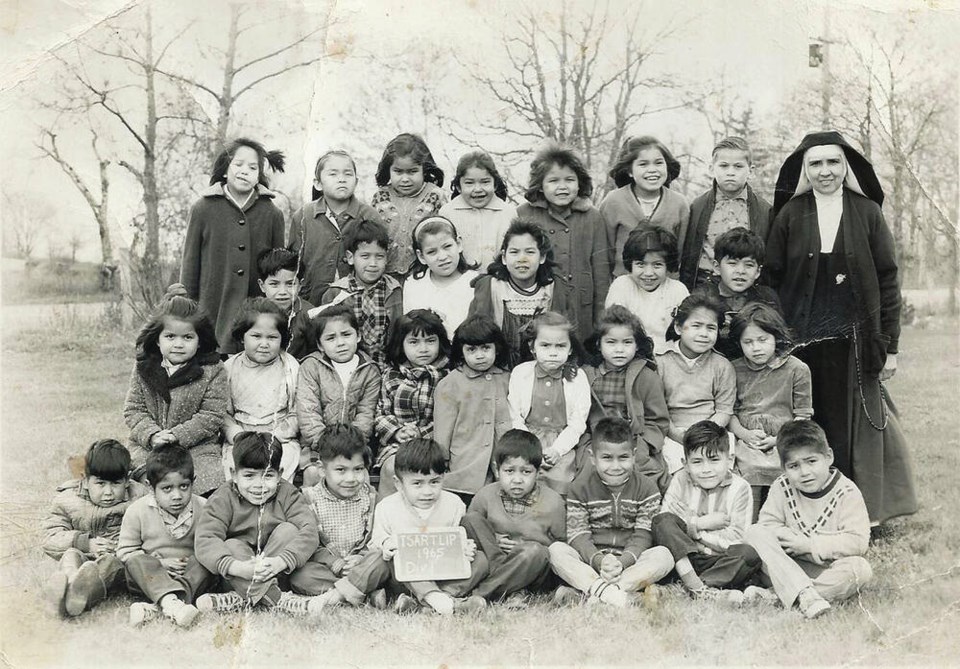Angel Sampson has spent her entire adulthood seeking healing.
Sampson attended the Tsartlip Indian Day School as a child until the end of Grade 6. During her formative years in the day school, she endured significant physical, sexual and emotional abuse.
Indian day schools were similar to residential schools except that children could go home in the evenings.
Sampson reached out to me asking if I would share her story. Her goal is to encourage other day-school survivors to come forward and join the Indian Day School Class Action Settlement. Survivors have until January 2023 to apply. Sampson is a named plaintiff in the settlement.
Whenever I write about Indigenous issues, particularly residential schools, I receive offensive emails. As I am sharing someone’s sensitive story, I ask for your respect this week. I know that there will be readers who hear this and think it’s all about money.
I want to emphasize that while funds are issued in these situations, the money is secondary to being heard and acknowledged, and hearing from the government that the experiences endured were wrong and no fault of the victim.
Sampson knows many of her peers who were also abused in Indian day schools are not applying because they are embarrassed and ashamed of the abuse they endured as children. Some have told her they don’t know if they have the strength to relive the abuse as they document it.
“We were beaten daily, locked in closets for hours, denied access to the bathroom and denied food,” Sampson said, adding that one day she was hit and dragged by her hair as the educator called her “Goddamn little Indian rain maker.”
Sampson said much worse things also happened to her and others. “One of the Sisters took us to the forest so we could learn how to have sex.”
Sampson shared graphic detail of the abuse she endured. “She was teaching six- and seven-year-old boys to rape me. I remember laying on the ground and seeing their faces. I had to look away because their faces looked so embarrassed.”
I have met many people who have suffered sexual abuse. Some of my close biological relatives endured significant childhood sexual abuse. When they speak if it, they share their experiences with similar candor, in an open, matter-of-fact way. I think that’s because to them, it’s not foreign, the way it might be to others who have never experienced it.
Sampson explained that in the settlement, there is a tiered system for compensation, depending on the abuse endured.
“I know people who are only applying for the smaller amounts because they don’t want to share the information about the sexual abuse,” said Sampson. “I want to show the other survivors that if I can talk about it, maybe they can, too.”
Sampson emphasised that while survivors have to share their experiences on the application, the accounts won’t be made public, and they can request that the papers be destroyed.
Sampson didn’t tell her parents of the abuse at the time it was happening. She and the other students were told that if they did so, they would get sent to residential school or be adopted out, or their parents would go to jail.
Sampson has spent years in therapy and seeking support from the Women’s Sexual Assault Centre. She is still on her healing path and hopes to support others on theirs.
>>> To comment on this article, write a letter to the editor: [email protected]



